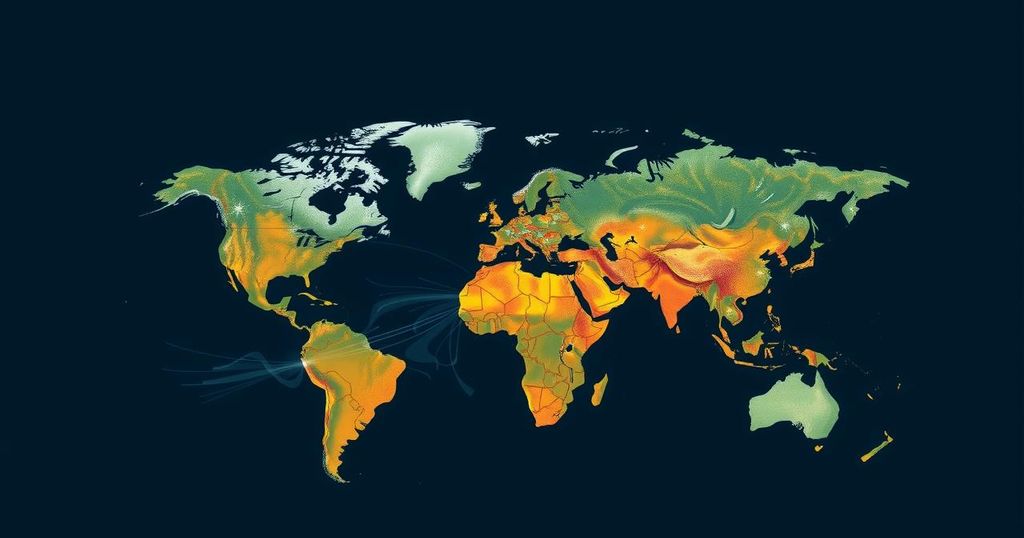International Court of Justice Addresses Climate Change Obligations

The International Court of Justice is currently holding hearings on climate change obligations under international law, featuring presentations from Brazil, Canada, and China. These nations underscore the urgent need for equitable climate action and collective responsibility, particularly in light of the profound impacts of climate change on vulnerable populations. An advisory opinion from the court is anticipated in 2025 to clarify state responsibilities.
On December 4, 2024, the International Court of Justice (ICJ) in The Hague commenced a ten-day session aimed at elucidating the obligations of UN member states under international law concerning climate change. During this session, Brazil, Canada, and China, among other nations, articulated their positions on the urgent need for collective action and equity in climate governance, emphasizing the dire consequences of climate change on vulnerable populations and ecosystems. These proceedings will culminate in an advisory opinion expected in 2025, guiding states on their responsibilities regarding climate action.
Brazil’s Ambassador for Climate Change, Luiz Alberto Figueiredo, highlighted his nation’s proactive stance, proposing a 67% reduction in emissions by 2035 relative to 2005 levels. He stressed the importance of inclusivity in climate policies, particularly for marginalized communities, while invoking the principle of Common but Differentiated Responsibilities and Respective Capabilities (CBDRRC) to hold historically high-emitting nations accountable.
Additionally, Brazil’s legal advisor, Professor Jorge Galindo, reinforced the CBDRRC as a guiding legal standard for addressing climate disparities and urged developed countries to commit to net-zero targets and support developing nations financially.
Canada’s representative, Louis Martel, described the alarming impacts of climate change, particularly in the Arctic, and affirmed Canada’s commitment to international agreements such as the Paris Accord, emphasizing the necessity of both individual and collective state responsibilities. Despite endorsing the “no harm” principle, Martel expressed concerns over its inconsistent application in customary international law.
China’s position, articulated by Ma Xinmin, stressed the principle of CBDRRC as crucial for equitable climate action. He criticized unilateral actions by developed countries that hinder the progress of developing nations toward green development and reiterated China’s commitment to inclusive international cooperation in climate action.
The discussions at the International Court of Justice arise from the pressing global challenge of climate change and the need for legal frameworks to delineate state responsibilities in mitigating its impacts. With increasing evidence of climate change’s adverse effects on ecosystems and communities, particularly Indigenous populations, the international community recognizes the necessity of effective collective action. The ICJ hearings involve multiple nations presenting legal arguments rooted in international environmental law and human rights frameworks. Ultimately, the court aims to provide an advisory opinion that could influence global climate governance and accountability.
The ongoing hearings at the International Court of Justice underscore the crucial intersection of climate justice and international law. Countries like Brazil, Canada, and China are advocating for equitable climate policies that recognize their varying responsibilities and capacities to address climate change. The expected advisory opinion from the ICJ in 2025 may serve as a pivotal tool for clarifying and reinforcing the legal responsibilities of states, particularly in protecting vulnerable communities and ecosystems from climate impacts.
Original Source: www.ipsnews.net






